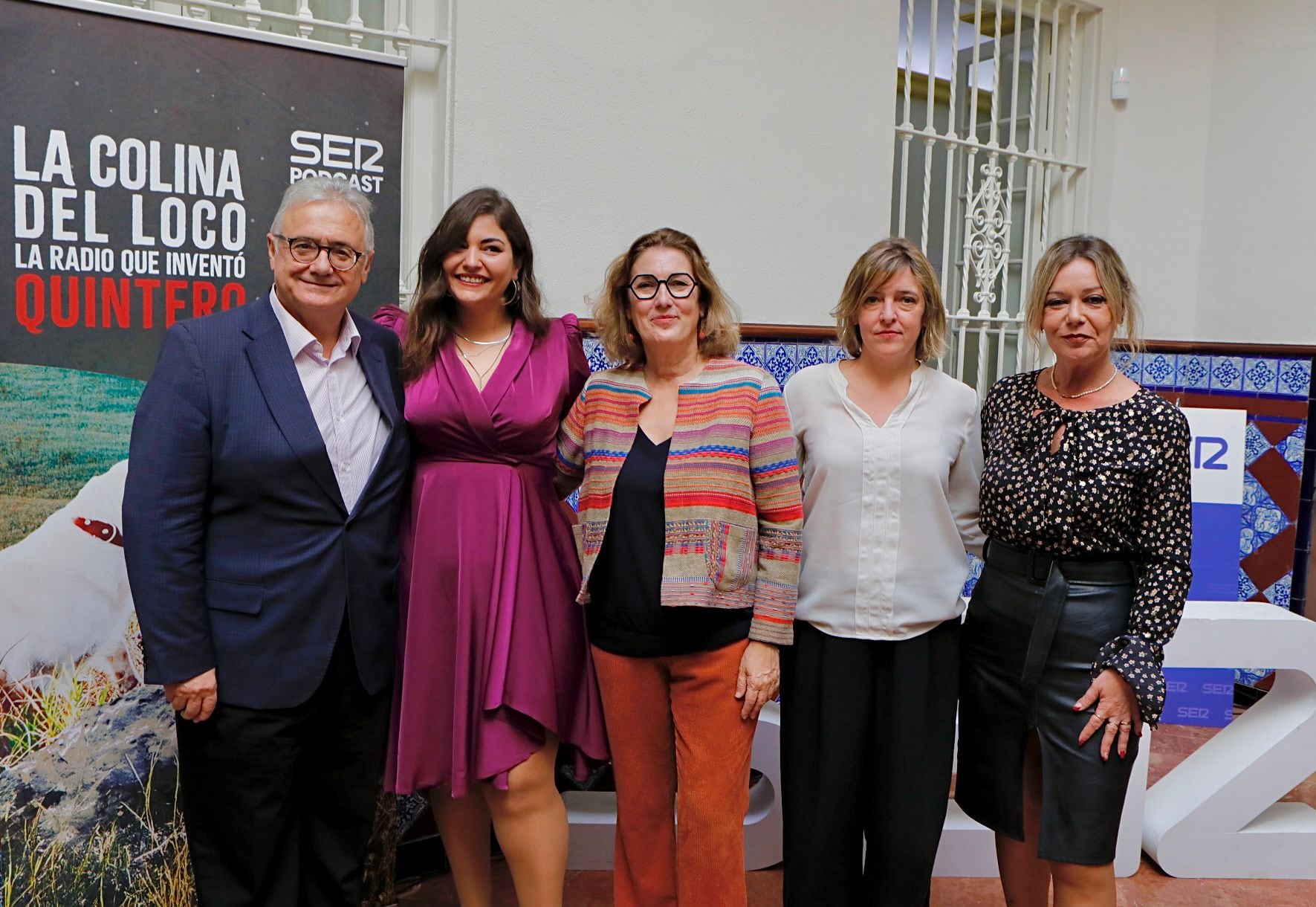“It is the conclusion of a dream,” says Andrea Quintero, daughter of the renowned journalist Jesús Quintero, about the sound documentary that addresses the history and life of her father and the style of the program. The crazy man on the hillthe legendary interview space starring the Huelva journalist. The podcast of the Chain Being Crazy Hill: the radio that Quintero invented It consists of six episodes of half an hour each in which Andrea Quintero acts as narrator.
The podcast – whose first two installments are already available both on the station’s website and on its Spotify profile – which was presented this morning on Radio Sevilla, the journalist’s home from 1982 to 1986, does not just provide a tour for the life and work of Jesús Quintero, he also analyzes through other communicators, such as Julia Otero, or technicians who accompanied him in the broadcasts of his programs, such as Manuel García, the importance of his silences that managed to appease those interviewed. “When I found out that these digitized tapes existed, my thought was that I had to listen to them now,” Andrea Quintero explained about the unreleased recordings that can be heard in the podcast. “You have made me spend a lot of time that I couldn’t have with my father.” Andrea Quintero is also a journalist and hopes that with this work the memory of her father, who died more than two years ago, can be maintained and his mark remembered.
Ana Alonso, head of Ser Podcast, has described Jesús Quintero as a pioneer “in many things.” Alonso recalled how he already started talking about climate change, interviewed transsexual people or asked about abortion. “He also insisted on creating a national program from here (Seville), in that he was also a pioneer,” he commented. Those responsible for the podcast hope that Quintero’s curiosity about the world and the taste he had for speech can be transmitted.
The mayor of San Juan del Puerto, the hometown of Jesús Quintero, Rocío Cárdenas, also participated in the event, and assured that the “investive” museum dedicated to Quintero’s personal and professional career will see the light of day in 2026. recognizes him as a figure, as a great man, where his messages can continue to resonate today,” said Cárdenas. “He was a transcendent person of his time, he was a visionary. Society continues to look for the crazy man on the hill, because society continues to need topics such as the depth of the soul and the search for a better world,” the councilor remarked.
The particular style of Jesús Quintero is far from the marked fast and dynamic rhythm under which today’s radio moves. Perhaps because it was a program that aired in the early morning, that sober and calm time that allowed for reflection managed to attract attention during the hours when many were sleeping or were close to sleep. In the podcast you hear many well-known voices from all kinds of social spectrums, from the world of art, thought or politics, such as those of Lola Flores, Alaska, Isabel Pantoja, Bárbara Rey, Rocío Jurado, Mario Vargas Llosa , Gloria Fuertes, Juan Goytisolo, Manuel Vázquez Montalbán, Manolita Chen, Julio Anguita, Blas Piñar, Manuela Carmena or the Duke of Alba, among others.
“The radio is like a cinema that you see in the dark. It is full of mental images, which is why radio, like cinema, will never be overthrown by television and video,” is heard in the podcast. A phrase whose idea is probably attributed to Raúl del Pozo or Javier Salvago, collaborators of The fool on the hill, according to program sources. A premonition that remains to this day.

